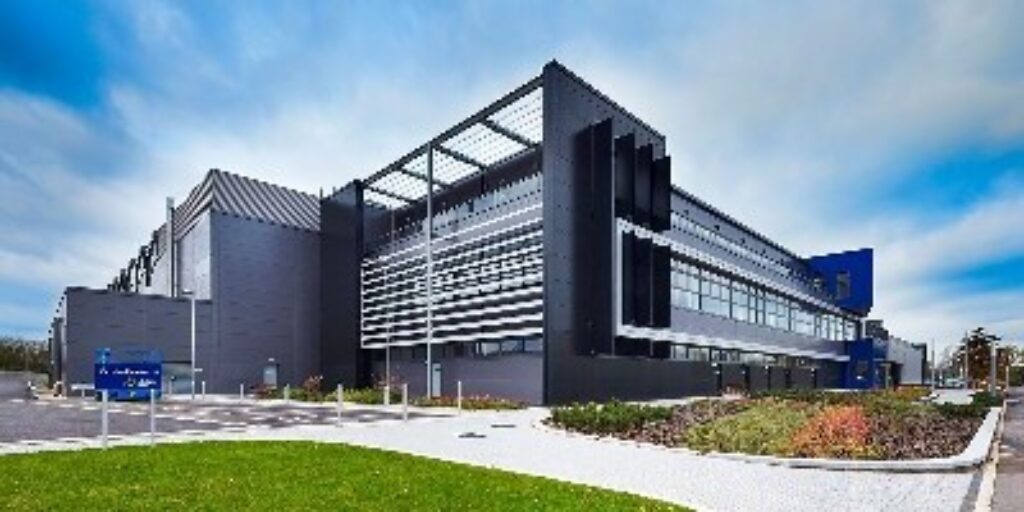HPE will build an NVIDIA-powered £225 million supercomputer at the University of Bristol in the UK that is expected to deliver “well over” 200 petaFLOP/s using the Top500’s LINPACK benchmark, and more than 21 ExaFLOP/s of AI performance, according to the university.
The system, called Isambard-AI, will be built on HPE Cray EX supercomputer architecte and will consist of 5,448 NVIDIA GH200 Grace Hopper Superchips, which combine NVIDIA’s Arm-based Grace CPU with a Hopper-based GPU. The system also will incorporate HPE Slingshot 11 interconnect, and nearly 25 petabytes of storage using the Cray Clusterstor E1000 optimised for AI workflows.
The university said the system will dliver 10 times performance improvement over the next-fastest system in the UK when Isambard-AI is live, and will enable Isambard-AI to perform over 21 quintillion AI-optimised floating point operations per second.
Isambard-AI will also feature direct liquid-cooling capabilities for improved energy efficiency and reduced carbon footprint impact. The system will be hosted in a self-cooled, self-contained data center, using the HPE Performance Optimized Data Center (POD), and will be situated at the National Composites Centre (NCC) (see above photo), based at the Bristol and Bath Science Park. It is scheduled to be opened at NCC next summer.
HPE is also collaborating with the University of Bristol on an energy efficient heat re-use model, extracting waste heat from the Isambard-AI system to heat local buildings, supporting the Net Zero carbon efficiency targets for 2030/2040 as mandated by the UK Government.
The funding injection is part of a £300m package to create a national Artificial Intelligence Research Resource (AIRR) for the UK announced at the government’s AI Safety Summit at Bletchley Park.
The new Bristol facility will be used by UK organisations to harness the power of AI to train large language models (LLMs), big data and robotics, and for accelerating automated drug discovery and climate research.
 Isambard-AI will connect with a new supercomputer cluster at the University of Cambridge, called Dawn, which is being developed to offer additional capacity as part of the new national AIRR.
Isambard-AI will connect with a new supercomputer cluster at the University of Cambridge, called Dawn, which is being developed to offer additional capacity as part of the new national AIRR.
Professor Simon McIntosh-Smith, Director of the Isambard National Research Facility at the University of Bristol, said: “Isambard-AI represents a huge leap forward for AI computational power in the UK. Today Isambard-AI would rank within the top 10 fastest supercomputers in the world and, when in operation later in 2024, it will be one of the most powerful AI systems for open science anywhere.
“It’s immensely exciting to be at the forefront of the AI revolution and to partner with industry leaders HPE and NVIDIA to rapidly build and deploy large-scale research computing infrastructure to create one of the most powerful supercomputers in the world. Isambard-AI will offer capacity never seen before in the UK for researchers and industry to harness the huge potential of AI in fields such as robotics, big data, climate research and drug discovery.”
Justin Hotard, Executive Vice President and General Manager, HPC, AI & Labs at HPE, said: “Today’s announcement of the UK’s major investment in AI supercomputing underscores its commitment to taking a global leadership position in AI. The Isambard-AI system will harness world-leading supercomputing, including high-performance networking co-developed at HPE’s Bristol labs, to provide the performance and scale required for compute-intensive AI projects. We are proud to partner with the UK Government and the University of Bristol to give UK researchers and industry access to Europe’s largest AI system for open science.”
Ian Buck, Vice President of Hyperscale and HPC at NVIDIA, said: “In building one of the world’s fastest AI supercomputers, the UK is demonstrating the importance for nations to create their own infrastructure. Isambard-AI will provide researchers with the same state-of-the-art AI and HPC compute resources used by the world’s leading AI pioneers, enabling the UK to introduce the next wave of AI and scientific breakthroughs.”
The government’s new Frontier AI Taskforce will have priority access to support its work to mitigate the risks posed by the most advanced forms of AI, including national security from the development of bioweapons and cyberattacks. The resource will also support the work of the AI Safety Institute, as it develops a programme of research looking at the safety of frontier AI models and supports government policy with this analysis.
Science, Innovation and Technology Secretary Michelle Donelan said: “Frontier AI models are becoming exponentially more powerful. At our AI Safety Summit in Bletchley Park, we have made it clear that Britain is grasping the opportunity to lead the world in adopting this technology safely so we can put it to work and lead healthier, easier and longer lives.
“This means giving Britain’s leading researchers and scientific talent access to the tools they need to delve into how this complicated technology works. That is why we are investing in building UK’s supercomputers, making sure we cement our place as a world-leader in AI safety.”
Richard Oldfield, Chief Executive Officer, National Composites Centre, said: “We are immensely proud to be hosting Isambard-AI at the National Composites Centre. This underpins our vision of bringing together world-class innovators, academic researchers and cutting-edge technology to solve some of the world’s most complex engineering challenges.
“Building on our expertise and state-of-the-art capability in accelerating industrial transformation from fundamental research to industrial application, we’re excited to be the home of the UK’s national AI supercomputing facility.”
Phase one of the system, available in March 2024, will utilise Isambard 3 – a TOP500-class supercomputer service for AI and high-performance computing (HPC). This is due to be installed at the NCC at the start of 2024 and was developed in collaboration with the GW4 group of universities – an alliance made up of the Universities of Bath, Bristol, Cardiff and Exeter. It will offer early access to UK-based scientists, researchers and developers so their research can get underway as soon as possible.
GW4 Alliance Director, Dr Joanna Jenkinson MBE, said: “Isambard-AI builds on the success of the GW4 Isambard Supercomputer, which started as a GW4 collaborative research community, and was the world’s first Arm-based computer to go into production use. Through GW4 Isambard, we have already seen progress made across research into vital areas such as Parkinson’s disease, osteoporosis and supporting patients with heart failure.
“I am delighted the strength and innovation of GW4 Isambard, and the importance of supporting academic and industrial collaboration, has helped to enable this new national Artificial Intelligence Research Resource – which will supercharge the nation’s digital growth and AI capabilities.”
Bristol is one of the top UK universities for AI research and scientific computing. It already plays host to cutting-edge computing technology, including the previously announced Isambard 3 supercomputer, while being home to the UKRI Centre for Doctoral Training in Interactive Artificial Intelligence and the newly announced UKRI AI Centre for Doctoral Training in Practice-Oriented Artificial Intelligence.




